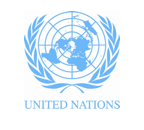UN Guiding Principles for Business & Human Rights Published
Published 03-24-11
Submitted by UN Secretary-General's Special Representative on Business & Human Rights
Today the United Nations released a much-anticipated set of Guiding Principles for Business and Human Rights (http://http://http://www.ohchr.org/EN/Issues/TransnationalCorporations/Pages/SRSGTransCorpIndex.aspx). The Guiding Principles seek to provide for the first time an authoritative global standard for preventing and addressing the risk of adverse human rights impacts linked to business activity. The UN Human Rights Council will consider formal endorsement of the text at its June 2011 session.
The Guiding Principles are the product of six years of research and extensive consultations, led by the Secretary-General's Special Representative for Business and Human Rights, Harvard Professor John Ruggie, involving governments, companies, business associations, civil society, affected individuals and groups, investors and others around the world.
The Guiding Principles outline how States and businesses should implement the UN "Protect, Respect and Remedy" Framework in order to better manage business and human rights challenges. That Framework, which Professor Ruggie proposed in 2008, was unanimously welcomed by the Human Rights Council at the time, and has since enjoyed extensive uptake by international and national governmental organizations, businesses, NGOs and other stakeholders.
The Guiding Principles highlight what steps States should take to foster business respect for human rights; provide a blueprint for companies to know and show that they respect human rights, and reduce the risk of causing or contributing to human rights harm; and constitute a set of benchmarks for stakeholders to assess business respect for human rights. The principles are organized under the UN Framework's three pillars:
- The State Duty to Protect Human Rights
- The Corporate Responsibility to Respect Human Rights
- The need for greater Access to Remedy for victims of business-related abuse.
"The Human Rights Council has been extremely supportive of the consultative approach I've taken throughout my mandate, and I look forward to formally presenting the Guiding Principles at the Council's June session," said Ruggie. "Endorsement by the Council would enable the global community to move beyond the confusion and polarization of the past by establishing an authoritative point of reference that recognizes the central role that States need to play, gives businesses predictability in what is expected of them, and provides other stakeholders, including civil society and investors, the tools to measure progress where it matters most - in the daily lives of people."
Background
The Special Representative's mandate was created in 2005 by what was then the UN Commission on Human Rights (now Human Rights Council) in order to move beyond what had been a long-standing and deeply divisive debate over the human rights responsibilities of companies. Professor Ruggie was appointed to the position by Kofi Annan, UN Secretary-General at the time, and was extended in his role by current Secretary-General Ban Ki-moon. Professor Ruggie's aim was to build meaningful consensus among all stakeholders about the roles and responsibilities of both States and companies with regard to business’s impacts on human rights. To achieve that consensus, he conducted extensive research and convened consultations around the world.
Out of that process came the UN "Protect, Respect and Remedy" Framework, which was unanimously welcomed by the Human Rights Council in 2008. The Council then asked the Special Representative to continue working in the same manner to operationalize the Framework. The Guiding Principles were developed in response to that request, and to take the next step of providing concrete guidance and recommendations to States and businesses, as well as benchmarks by which their performance can be assessed by other stakeholders.
In October 2010, the Special Representative presented an outline of the Guiding Principles at separate consultations with States, business and civil society. He posted a full draft of the Guiding Principles for public comment from November 2010 through January 2011; some 100 written submissions were received, and a special online forum attracted 3,576 unique visitors from 120 countries and territories. In addition, the draft was discussed at an expert multi-stakeholder meeting and a session with Human Rights Council delegations, both in January 2011. The Special Representative considered all comments and submitted the final text in March.
Since the establishment of his mandate in 2005, the Special Representative has convened 47 consultations on all continents. He and his team have made site visits to business operations and their local stakeholders in more than 20 countries, and conducted pilot projects with companies and their external stakeholders in five countries. This inclusive process was made possible by voluntary financial contributions from numerous governments. In addition, more than 20 corporate law firms from around the world with expertise in over 40 jurisdictions conducted pro bono research for the mandate. The Special Representative is immensely grateful for this extraordinary level of assistance and cooperation.
For more information, please visit the Special Representative's web portal: http://www.business-humanrights.org/SpecialRepPortal/Home.

UN Secretary-General's Special Representative on Business & Human Rights
UN Secretary-General's Special Representative on Business & Human Rights
In July 2005, UN Secretary-General Kofi Annan appointed Harvard professor John Ruggie as his Special Representative on Business and Human Rights. In 2008, Ruggie proposed a policy framework for better managing business and human rights challenges, based on three pillars: the state duty to protect against human rights abuses by third parties, including business; the corporate responsibility to respect human rights; and the need for greater access by victims to effective remedy, judicial and non-judicial. The Human Rights Council was unanimous in welcoming the framework, and extended Ruggie's mandate by three years with the task of operationalizing it. Ruggie's aim is to develop guiding principles for each of its three pillars; his mandate concludes in 2011.
More from UN Secretary-General's Special Representative on Business & Human Rights

